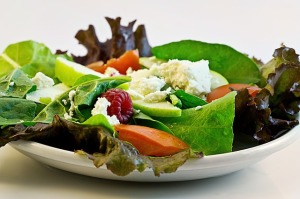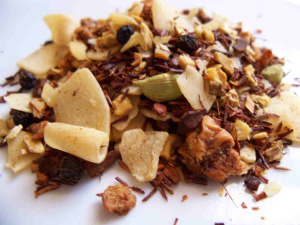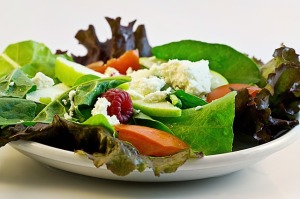Monday, March 15th, 2021 at
2:39 am
 Similar in some ways to ultra-popular fish oil, krill oil is beginning to find its way into the health regimen of an ever-increasing number of people.
Similar in some ways to ultra-popular fish oil, krill oil is beginning to find its way into the health regimen of an ever-increasing number of people.
But what exactly is krill oil?
Where does it come from?
Let’s take a dive deep for answers to those and other questions about krill.
Found in all of the world’s oceans, krill, translated from Norwegian as “small fry of fish”, is one of the planet’s largest biomasses helping to sustain a diverse array of species in the natural world. Krill exist near the bottom of the food chain, feeding on phytoplankton and zooplankton. The krill convert these food sources into energy and in turn become the main diet for an incredible amount of sea life, including baleen whales, seals, penguins, squid, and fish.
One species in particular, the Southern Ocean’s Antarctic krill is especially abundant, with an estimated biomass of 500 million metric tons—making it a super source of energy for other living organisms. And it is this species in particular that finds its way into krill oil nutritional supplements.
Read more here:: https://lowcarbmag.com/top-three-scientific-based-reasons-why-you-should-be-taking-krill-oil/




Monday, February 1st, 2021 at
1:31 am
 CoVid-19’s initial symptoms include fever, cough, shortness of breath, fatigue and loss of taste or smell. Moreover, the additional complications can affect the cardiovascular system, kidneys, liver and lungs.
CoVid-19’s initial symptoms include fever, cough, shortness of breath, fatigue and loss of taste or smell. Moreover, the additional complications can affect the cardiovascular system, kidneys, liver and lungs.
One of the identified underlying dysfunctions that trigger shortness of breath and severe lung complications is hypercoagulability. In one study, patients who were admitted to Padova University Hospital in Italy for acute respiratory failure showed “markedly hypercoagulable thromboelastometry profiles.”
Clot formations throughout the body may be associated with other complications arising after the illness has resolved. It appears that the difference between people who have a mild or severe illness may be related to the body’s ability to reduce the hypercoagulability and the hyperimmune response that leads to a cytokine storm.
Read more here:: https://lowcarbmag.com/how-glutathione-works-in-covid-prevention-and-treatment/




Sunday, September 27th, 2020 at
11:56 pm
 In this interview, Dr. Mercola’s guest Dr. Andrew Saul, editor-in-chief of the Orthomolecular Medicine News Service, reviews what we currently know about vitamin C (ascorbic acid) for the prevention and treatment of novel coronavirus COVID-19.
In this interview, Dr. Mercola’s guest Dr. Andrew Saul, editor-in-chief of the Orthomolecular Medicine News Service, reviews what we currently know about vitamin C (ascorbic acid) for the prevention and treatment of novel coronavirus COVID-19.
At the time of this interview, March 17, 2020, COVID-19 has triggered mass hysteria — in the United States at least. Countries around the world, including the U.S., are also quarantining, closing down borders, implementing curfews and generally recommending or enforcing isolation of the populace.
But this is all for the most part a preventive strategy. Are people infected? Yes. Are people dying? Yes. But we’re talking about deaths in the thousands, not hundreds of thousands or millions, as in pandemics of the past (think the 1918 flu pandemic, for example, which killed tens of millions around the world).
Read more here:: https://lowcarbmag.com/the-importance-of-vitamin-c-during-this-pandemic/




Tuesday, April 25th, 2017 at
6:04 pm
 Each color of fruits and vegetables adds different nutrients that are beneficial to our bodies. By eating an array of colorful foods, you can provide your body with the essential nutrition it needs. So let’s look at healthy foods in the color of the rainbow and explore why they can be beneficial to us because of their color.
Each color of fruits and vegetables adds different nutrients that are beneficial to our bodies. By eating an array of colorful foods, you can provide your body with the essential nutrition it needs. So let’s look at healthy foods in the color of the rainbow and explore why they can be beneficial to us because of their color.
Read more here:: http://lowcarbmag.com/the-health-benefits-of-eating-the-rainbow/
Friday, March 31st, 2017 at
10:05 am
 Most health and fitness writers don’t spend a lot of time on cartilage. As tissues go, it’s fairly isolated. It doesn’t contain blood vessels, so we can’t deliver blood-borne nutrients to heal and grow it. Cartilage has no nerve cells, so we can’t “feel” what’s going on. Doctors usually consider it to be functionally inert, a sort of passive lubricant for our joints. If it breaks down, you’re out of luck, they say.
Most health and fitness writers don’t spend a lot of time on cartilage. As tissues go, it’s fairly isolated. It doesn’t contain blood vessels, so we can’t deliver blood-borne nutrients to heal and grow it. Cartilage has no nerve cells, so we can’t “feel” what’s going on. Doctors usually consider it to be functionally inert, a sort of passive lubricant for our joints. If it breaks down, you’re out of luck, they say.
Read more here:: http://lowcarbmag.com/feed-train-and-care-for-your-cartilage/
Monday, March 27th, 2017 at
10:05 am
 Want a good nutrition for your child? Be a role model! It’s easy to be frustrated at times and it’s tempting to just give your child the food that he wants, but highly palatable food is quite often unhealthy, full of sugar (which kids adore) or fat. Other parents are trying to reinforce eating […]
Want a good nutrition for your child? Be a role model! It’s easy to be frustrated at times and it’s tempting to just give your child the food that he wants, but highly palatable food is quite often unhealthy, full of sugar (which kids adore) or fat. Other parents are trying to reinforce eating […]
Read more here:: http://lowcarbmag.com/want-a-good-nutrition-for-your-child-be-a-role-model/
Friday, March 17th, 2017 at
10:08 am
 There is some research suggesting that taking vitamins A, C, and E in supplement form may have skin-saving benefits. They’re all antioxidants that may prevent or delay some types of skin cell damage. But unless you’re deficient in any of these vitamins, you can get what you need from a well-balanced diet that includes fruit, […]
There is some research suggesting that taking vitamins A, C, and E in supplement form may have skin-saving benefits. They’re all antioxidants that may prevent or delay some types of skin cell damage. But unless you’re deficient in any of these vitamins, you can get what you need from a well-balanced diet that includes fruit, […]
Read more here:: http://lowcarbmag.com/will-certain-vitamins-give-you-better-skin/
Friday, April 15th, 2016 at
6:09 pm
 There is so much contradicting dietary advice out there, it can be hard to navigate what is true and what isn’t. Eat breakfast. Don’t eat breakfast. Ditch carbs. Become vegan. Who’s right? The truth is, there are a few fundamental rules to having a healthy relationship with your food that you should heed — and none of them tell you what types of foods to eat. Here are 5 universal dietary rules you should follow.
There is so much contradicting dietary advice out there, it can be hard to navigate what is true and what isn’t. Eat breakfast. Don’t eat breakfast. Ditch carbs. Become vegan. Who’s right? The truth is, there are a few fundamental rules to having a healthy relationship with your food that you should heed — and none of them tell you what types of foods to eat. Here are 5 universal dietary rules you should follow.
Continue reading…
Monday, March 7th, 2016 at
10:09 am
 Fatigue, mood swings, night sweats and decreased libido are just a few of the uncomfortable symptoms that accompany menopause, a process that marks the end of a woman’s fertility, typically occurring around the age of 51.
Fatigue, mood swings, night sweats and decreased libido are just a few of the uncomfortable symptoms that accompany menopause, a process that marks the end of a woman’s fertility, typically occurring around the age of 51.
Hormone replacement therapy, including estrogen, progesterone and testosterone, is frequently offered as a treatment for menopause-related hormone imbalances; however, many people experience drug-related side effects. Long-term use and taking the incorrect dosage can contribute to some very serious health risks, including breast cancer, blood clots, myocardial infarction and stroke.
However, a report by EmpowHer.com lists five natural herbs that are helpful in reducing the irritating and sometimes painful symptoms associated with menopause.
Continue reading…
Monday, February 29th, 2016 at
6:07 pm
 Do you ever wonder where you positive emotions went?
Do you ever wonder where you positive emotions went?
If your optimistic outlook on life has soured, then you should know that – beyond psychological approaches – nutrition plays a key role in maintaining your moods.
Here are some nutrients to research and test:
Amino Acids
As protein’s essential building blocks, amino acids play a key role in helping your brain function properly. When you aren’t getting enough amino acids in your diet, you may begin to feel depressed, unfocused, and sluggish.
B Complex Vitamins
According to a study conducted in 2009, more than a quarter of all older women diagnosed with severe depression were deficient in B complex vitamins, suggesting that these are far more important for our mental health that anyone previously realized.
Vitamin D
Vitamin D deficiencies have not only been linked to depression, but to autism and dementia as well. The easiest time to become vitamin D deficient is during the fall and winter months, when we’re receiving less sunlight. According to the National Institutes of Health, adults need 600 IUs of vitamin D per day.
Continue reading…
 Similar in some ways to ultra-popular fish oil, krill oil is beginning to find its way into the health regimen of an ever-increasing number of people.
Similar in some ways to ultra-popular fish oil, krill oil is beginning to find its way into the health regimen of an ever-increasing number of people.




 CoVid-19’s initial symptoms include fever, cough, shortness of breath, fatigue and loss of taste or smell. Moreover, the additional complications can affect the cardiovascular system, kidneys, liver and lungs.
CoVid-19’s initial symptoms include fever, cough, shortness of breath, fatigue and loss of taste or smell. Moreover, the additional complications can affect the cardiovascular system, kidneys, liver and lungs. In this interview, Dr. Mercola’s guest Dr. Andrew Saul, editor-in-chief of the Orthomolecular Medicine News Service, reviews what we currently know about vitamin C (ascorbic acid) for the prevention and treatment of novel coronavirus COVID-19.
In this interview, Dr. Mercola’s guest Dr. Andrew Saul, editor-in-chief of the Orthomolecular Medicine News Service, reviews what we currently know about vitamin C (ascorbic acid) for the prevention and treatment of novel coronavirus COVID-19. Each color of fruits and vegetables adds different nutrients that are beneficial to our bodies. By eating an array of colorful foods, you can provide your body with the essential nutrition it needs. So let’s look at healthy foods in the color of the rainbow and explore why they can be beneficial to us because of their color.
Each color of fruits and vegetables adds different nutrients that are beneficial to our bodies. By eating an array of colorful foods, you can provide your body with the essential nutrition it needs. So let’s look at healthy foods in the color of the rainbow and explore why they can be beneficial to us because of their color. Most health and fitness writers don’t spend a lot of time on cartilage. As tissues go, it’s fairly isolated. It doesn’t contain blood vessels, so we can’t deliver blood-borne nutrients to heal and grow it. Cartilage has no nerve cells, so we can’t “feel” what’s going on. Doctors usually consider it to be functionally inert, a sort of passive lubricant for our joints. If it breaks down, you’re out of luck, they say.
Most health and fitness writers don’t spend a lot of time on cartilage. As tissues go, it’s fairly isolated. It doesn’t contain blood vessels, so we can’t deliver blood-borne nutrients to heal and grow it. Cartilage has no nerve cells, so we can’t “feel” what’s going on. Doctors usually consider it to be functionally inert, a sort of passive lubricant for our joints. If it breaks down, you’re out of luck, they say. Want a good nutrition for your child? Be a role model! It’s easy to be frustrated at times and it’s tempting to just give your child the food that he wants, but highly palatable food is quite often unhealthy, full of sugar (which kids adore) or fat. Other parents are trying to reinforce eating […]
Want a good nutrition for your child? Be a role model! It’s easy to be frustrated at times and it’s tempting to just give your child the food that he wants, but highly palatable food is quite often unhealthy, full of sugar (which kids adore) or fat. Other parents are trying to reinforce eating […] There is some research suggesting that taking vitamins A, C, and E in supplement form may have skin-saving benefits. They’re all antioxidants that may prevent or delay some types of skin cell damage. But unless you’re deficient in any of these vitamins, you can get what you need from a well-balanced diet that includes fruit, […]
There is some research suggesting that taking vitamins A, C, and E in supplement form may have skin-saving benefits. They’re all antioxidants that may prevent or delay some types of skin cell damage. But unless you’re deficient in any of these vitamins, you can get what you need from a well-balanced diet that includes fruit, […]


